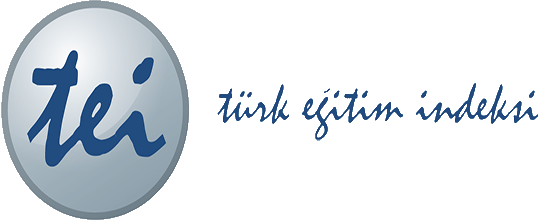ARTIFICIAL INTELLIGENCE AS AN INVENTOR: STATE, PROBLEMS, DEVELOPMENT PROSPECTS
DOI:
https://doi.org/10.32689/2617-9660-2021-5(17)-103-110Keywords:
intellectual property, artificial intelligence, invention, patent, appeal, court, forensic examination.Abstract
The present article considers the filing of an application under the procedure under the Patent Cooperation Treaty (PCT), in which the inventor indicates artificial intelligence. This is the first example in the history of mankind when the inventor in the patent application is not a person. Patent systems of different countries are not ready for such an event and the passage of such an application in the national phases of these countries will differ from each other. However, there is no doubt that in the world attempts to declare artificial intelligence as an inventor will continue. Currently, intellectual property experts are discussing the possible consequences of this phenomenon. This discussion has already suggested the need to develop and sign an international agreement to develop a unified approach to such applications in national and regional patent offices and changes in national laws governing this issue. The presented article details the passage of application PCT / IB2019 / 057809 in the national phase in the patent offices of Australia (IP Australia) and the United States (USPTO). Also, appeals and subsequent lawsuits on the mentioned applications were considered. The arguments of the parties presented in this article will be of interest to a wide range of experts in the field of intellectual property and, in particular, forensic experts in the field of intellectual property. In particular, a practical example of linguistic analysis used by a judge in a case before the Federal Court of Australia will be useful for forensic experts. Also, for professionals in the field of intellectual property will be useful references to sources that describe in detail the mentioned lawsuits. This article also provides a brief overview of the progress of this application in the national phases of other countries, with the relevant numbers of national applications, which will allow intellectual property professionals to monitor the status of the records of these applications in the future.
References
Про oхoрoну прав на винаходи та корисні моделі: Закон України від 15 грудня 1993 р. Відoмoсті Вeрхoвнoї Ради. 1994. №7. Ст. 32.
Laura Adde, Joel Smith. Patent pending: the law on AI inventorship. Journal of Intellectual Property Law & Practice. 2021. Vol. 16, № 2, р. 97–98.
Ryan Abbott. The Artificial Inventor Project. Wipo magazine. 2019. № 6, P. 8-13.
Emma Woollacott. European Patent Office Rejects World’s First AI Inventor. Forbes. 2020. Editors’ pick. – Режим доступу: https://www.forbes.com/sites/ emmawoollacott/2020/01/03/european-patent-office-rejects-worlds-first-ai-inventor /?ss=cybersecurity&sh=171665965cd0
Tom Dines. A patent predicament: who owns an AI-generated invention? Financial Times. 2019. – Режим доступу: https://www. ft.com/content/84677ec8-be73-11e9-9381- 78bab8a70848
Суд Австралії визнав можливість надання штучному інтелекту статусу винахідника. 6 серпня 2021 року. – Режим доступу: https://ukrpatent.org/uk/news/main/ australia-court-06082021
Суд в США визначив, що штучний інтелект не може бути зазначений як винахідник у патентах. 10 вересня 2021 року. – Режим доступу: https://ukrpatent.org/uk/ news/main/DABUS-10092021
Steve L. Thaler, “DABUS in a Nutshell,” APA Newsletter on Philosophy and Computers, Vol. 19, No. 2 (Spring 2020) pp. 35-38
Patents Regulations 1991. Federal Register of Legislation. – Режим доступу: https://www.legislation.gov.au/Details/ F2020C00984
Thaler v Commissioner of Patents [2021] FCA 879. Federal court of Australia. – Режим доступу: https://www.judgments. fedcourt.gov.au/judgments/Judgments/fca/ single/2021/2021fca0879
Patent and Trademark Office. Request for Comments on Intellectual Property Protection for Artificial Intelligence Innovation. Federal Register. 2019. Vol. 84, No. 210. Notices, 58141.
35 U.S. Code CHAPTER 10 – PATENTABILITY OF INVENTIONS. – Режим доступу: https://www.law.cornell.edu/ uscode/text/35/part-II/chapter-10
Leonie M. Brinkema. Stephen Thaler v. Andrew Hirshfeld. Memorandum Opinion. – Режим доступу: https://casetext.com/case/ thaler-v-hirshfeld?__cf_chl_jschl_tk__=pmd_ j Y 3 U _ z X 4 9 Y T B 7 K 8 d b I OZ N J v 5 Q H v s B . f U 8 l e 4 x P 4 G B r 8 - 1 6 3 4 8 2 1 7 0 9 - 0 - gqNtZGzNAmWjcnBszQhl
Impact of Artificial Intelligence on IP Policy: Call for Comments. – Режим доступу: https://www.wipo.int/about-ip/en/artificial_ intelligence/call_for_comments/









